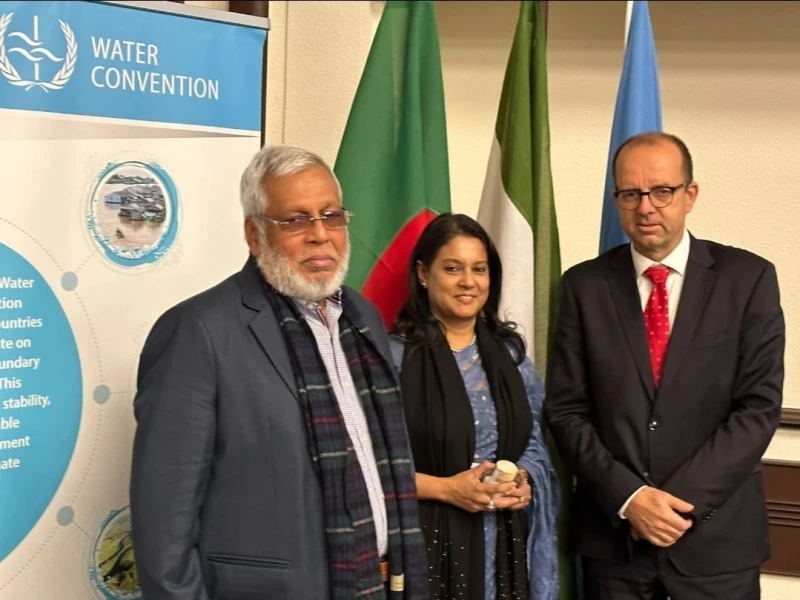Bangladesh has called for fair and cooperative management of shared water resources, highlighting the vital role of rivers in the country’s survival and development, Adviser Syeda Rizwana Hasan said at the 1st Session of the 6th Joint Meeting of the Working Groups on Integrated Water Resources Management and Monitoring & Assessment of the UN Water Convention in Geneva on Monday.
Representing Bangladesh as its newly acceded member to the UN Water Convention, Rizwana Hasan emphasized the nation’s deep connection with rivers, stating: “For Bangladesh, rivers are not just rivers — they are our lifeblood.”
She noted that as the world’s largest river delta, Bangladesh depends on rivers like the Ganges-Padma, Brahmaputra-Jamuna, and Surma-Meghna, with over 90 percent of its surface water originating outside its borders.
Highlighting Bangladesh’s position as a lower riparian country, she called for adherence to the principles of equitable and reasonable utilization, participation, and no harm in managing transboundary rivers.
Transboundary cooperation is indispensable for Bangladesh’s survival,” she said, stressing that the country seeks stronger regional partnerships to secure water for its people.
Rizwana Hasan also referred to Bangladesh’s legal and institutional achievements, including bilateral treaties, the Joint Rivers Commission, and a landmark Supreme Court ruling recognizing all rivers as “living entities” with legal personhood — a globally significant precedent in environmental jurisprudence.
Acknowledging domestic challenges, she said Bangladesh is strengthening institutional capacity, improving data and monitoring systems, and addressing issues such as river pollution, salinity intrusion, and reduced flows.
The Adviser highlighted initiatives like nationwide groundwater assessments, identification of water-stressed zones, and rainwater harvesting schemes in salinity-affected coastal areas to ensure potable water supply.
Bangladesh’s accession as the first South Asian country to the UN Water Convention will facilitate constructive engagement towards sustainable water futures for the region,” she added, reaffirming the country’s commitment to sustainable and inclusive water governance, climate resilience, and international cooperation.
Advisor Muhammad Fouzul Kabir Khan, representing the Ministries of Road Transport and Bridges, Railways, and Power, Energy and Mineral Resources, was also present.
Bangladesh’s membership to the UN Convention on the Protection and Use of Transboundary Watercourses and International Lakes is being celebrated at the 20th Meeting of Parties of the Convention in Geneva, signaling the country’s dedication to promoting water security and regional cooperation in South Asia.


 Prev Post :
Prev Post :
